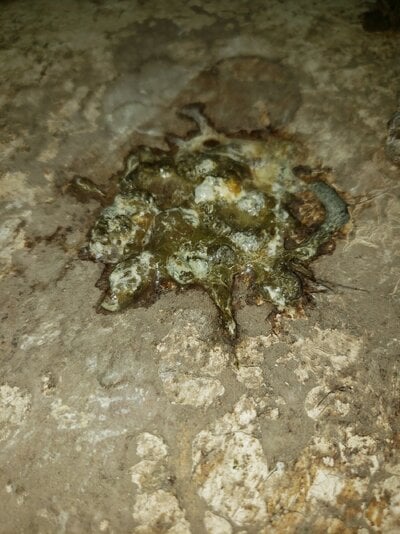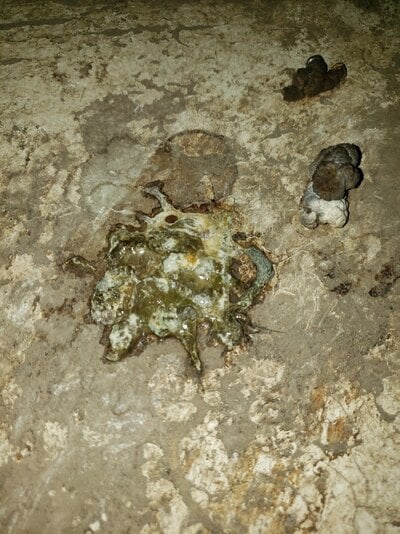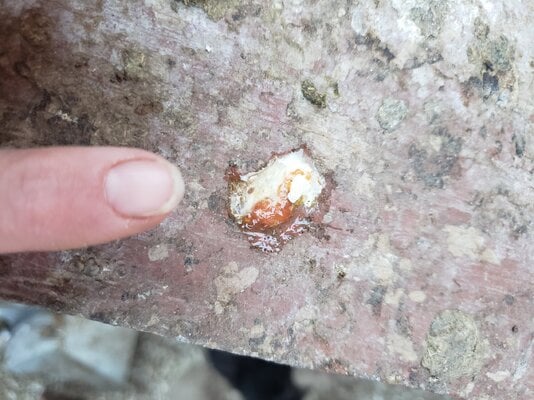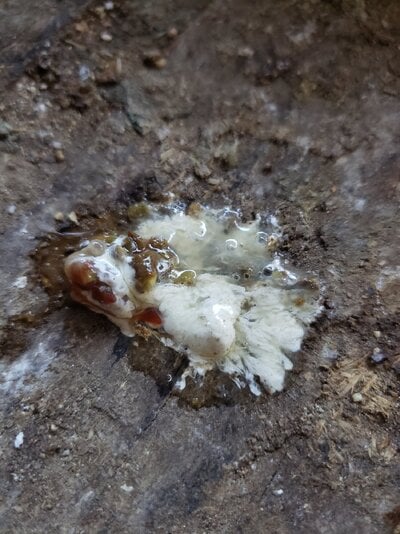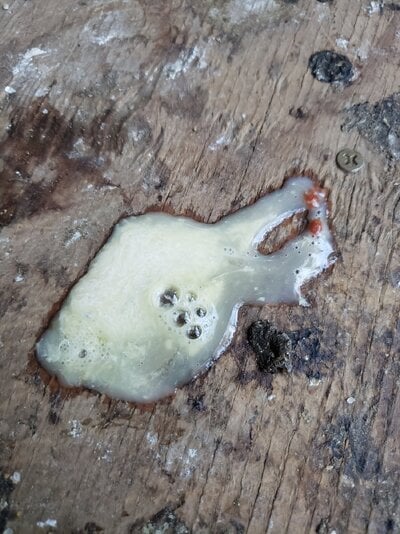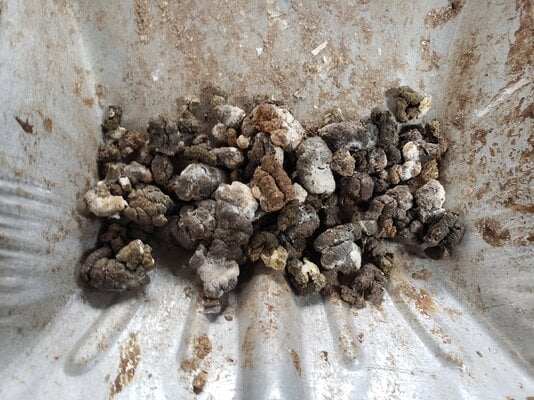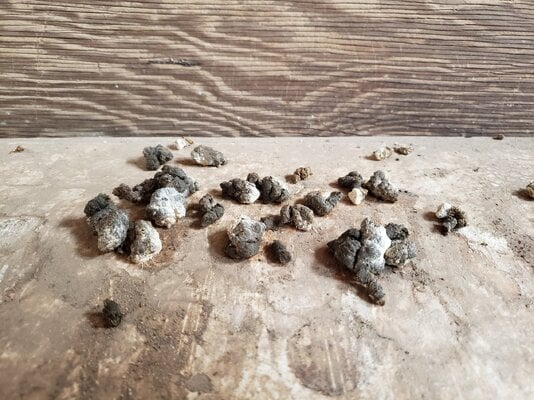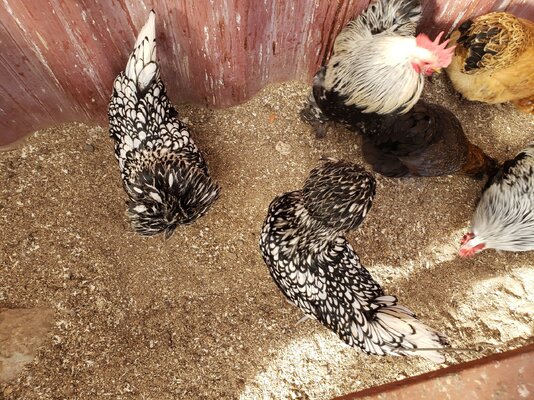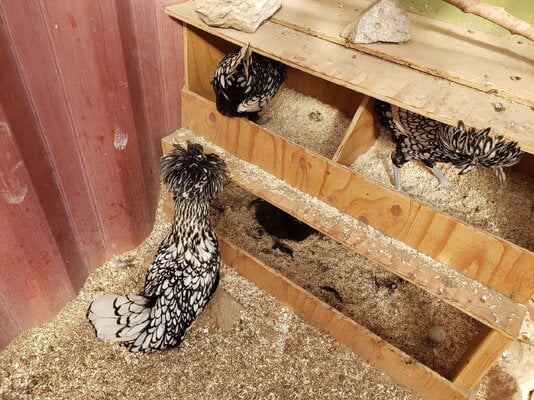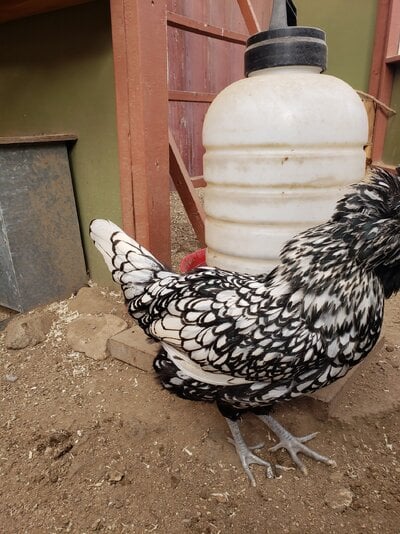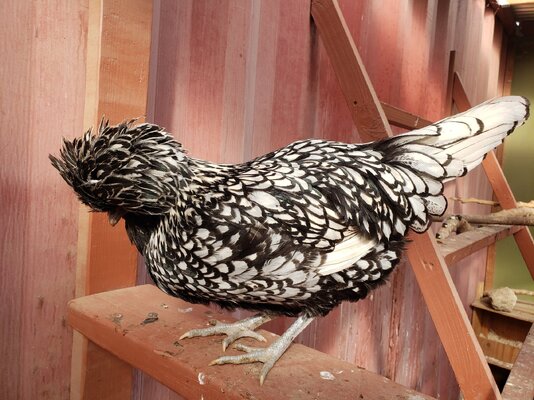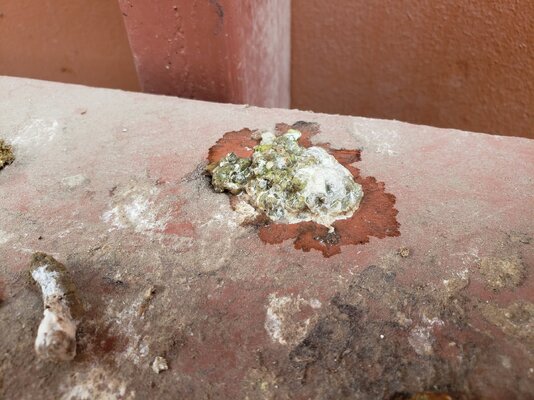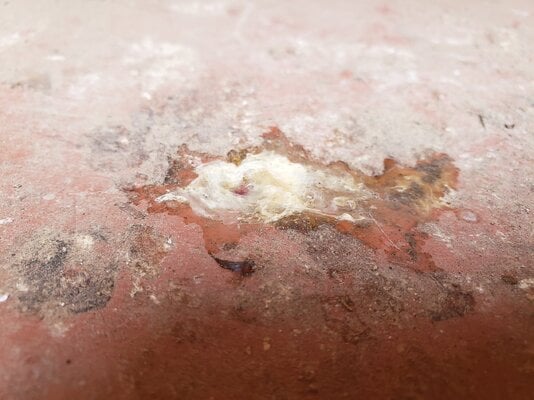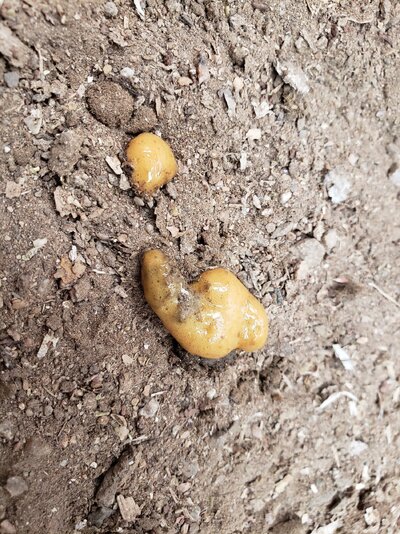Saraschickens
Chirping
- Dec 8, 2023
- 74
- 31
- 61
Hello,
I have several questions. Back at the end of August I saw worms in 1 of my chicken's poop. I don't know which chicken. I have 72 chickens total. A bantam coop and a standard coop. I also got chicken mites at that time and decided to use ivermectin. I gave it to them twice, 10 days apart. The mites cleared up and I didn't see any more worms. So I assumed the worms were gone. Recently, after reading more about worms, I'm thinking they were tape worms. I'm reading that ivermectin does not kill tape worms. I have been watching poop like a hawk, but have not seen another poop with worms since. I started noticing about a month ago that my chickens were shedding intestinal linings, about 6-10 linings per day out of 72 chickens. I don't know if it's fine, but I feel like it could be important information. I've also noticed a lot of loose poos. They free roam several hours per day, so they could potentially eat things that aren't great. I've had chickens for 16 years now, but I'm new to the property I'm at. It was a barron 5 acres, and we've planted around 500 trees and plants on it. I'm also new to the types of chickens I have this year. I'm used to silkies and cochins, but now I have easter eggers, welsummers, olive eggers, polish, d'uccles, and houdans as well. I'm very new to roaming them in this yard. They roam a very small portion, a fenced area, within a fenced area, but still around trees. We have many predators being up close to our mountain. Sorry to digress, but I thought it might help paint my picture. So my questions and concerns are:
1. I have not done a fecal float test with poo. For many reasons, I'm unable to and also choosing not to. Can I deworm my chickens with safeguard, even though I am unsure if they have worms?
I read an article about the eggs being dirty potentially because of worms. I heard safeguard is safe and wouldn't hurt anything to cover my bases. I see diarrhea type poop constantly. I do feed them weeds and flowers, some kitchen scraps (not the diarrhea causing kind), they free roam and definitely eat plum leaves, nectarine leaves, & apricot leaves. I thought I might be dealing with coccidiosis, so I bought Corid, but decided against using it because there wasn't enough evidence that it was coccidiosis and this has been going on for over a month now that I'm even paying attention.
And like I said, one did have worms back in August.
2. I found an article that suggested putting it in their water for 5 days at a dose of 3ml or 1/2 tsp per gallon. Can I try this?
I understand there's conflicting information on putting it in the water source, and instead giving it directly to each bird. I want to put it in the water, due to the fact that I have 72 chickens (and roosters).
3. If I did this, should I be giving them probiotics during or after the treatment? I keep seeing that people are doing this, but I wasn't sure if the dewormer was killing their probiotics and required them to be put back in.
4. Is 125ml bottle of Safeguard enough to treat my flock of 72 birds?
I'm sure I have more questions, I can't think of them just now, but I wanted to order this Safeguard off Amazon, but it won't arrive until as early as the 22nd of December, if I order right now. I need someone who can help me in layman's terms. I've never wormed a chicken in my life. But after reading so much information, and talking with others, I constantly hear of people deworming their chickens 1-2 times a year! This last end of August was the first time I've ever seen worms in a chicken's poo before. 12 of my chickens are 2 years old, and the rest are about 6 months old, plus.
-Thank you in advance to anyone who can help me!
I have several questions. Back at the end of August I saw worms in 1 of my chicken's poop. I don't know which chicken. I have 72 chickens total. A bantam coop and a standard coop. I also got chicken mites at that time and decided to use ivermectin. I gave it to them twice, 10 days apart. The mites cleared up and I didn't see any more worms. So I assumed the worms were gone. Recently, after reading more about worms, I'm thinking they were tape worms. I'm reading that ivermectin does not kill tape worms. I have been watching poop like a hawk, but have not seen another poop with worms since. I started noticing about a month ago that my chickens were shedding intestinal linings, about 6-10 linings per day out of 72 chickens. I don't know if it's fine, but I feel like it could be important information. I've also noticed a lot of loose poos. They free roam several hours per day, so they could potentially eat things that aren't great. I've had chickens for 16 years now, but I'm new to the property I'm at. It was a barron 5 acres, and we've planted around 500 trees and plants on it. I'm also new to the types of chickens I have this year. I'm used to silkies and cochins, but now I have easter eggers, welsummers, olive eggers, polish, d'uccles, and houdans as well. I'm very new to roaming them in this yard. They roam a very small portion, a fenced area, within a fenced area, but still around trees. We have many predators being up close to our mountain. Sorry to digress, but I thought it might help paint my picture. So my questions and concerns are:
1. I have not done a fecal float test with poo. For many reasons, I'm unable to and also choosing not to. Can I deworm my chickens with safeguard, even though I am unsure if they have worms?
I read an article about the eggs being dirty potentially because of worms. I heard safeguard is safe and wouldn't hurt anything to cover my bases. I see diarrhea type poop constantly. I do feed them weeds and flowers, some kitchen scraps (not the diarrhea causing kind), they free roam and definitely eat plum leaves, nectarine leaves, & apricot leaves. I thought I might be dealing with coccidiosis, so I bought Corid, but decided against using it because there wasn't enough evidence that it was coccidiosis and this has been going on for over a month now that I'm even paying attention.
And like I said, one did have worms back in August.
2. I found an article that suggested putting it in their water for 5 days at a dose of 3ml or 1/2 tsp per gallon. Can I try this?
I understand there's conflicting information on putting it in the water source, and instead giving it directly to each bird. I want to put it in the water, due to the fact that I have 72 chickens (and roosters).
3. If I did this, should I be giving them probiotics during or after the treatment? I keep seeing that people are doing this, but I wasn't sure if the dewormer was killing their probiotics and required them to be put back in.
4. Is 125ml bottle of Safeguard enough to treat my flock of 72 birds?
I'm sure I have more questions, I can't think of them just now, but I wanted to order this Safeguard off Amazon, but it won't arrive until as early as the 22nd of December, if I order right now. I need someone who can help me in layman's terms. I've never wormed a chicken in my life. But after reading so much information, and talking with others, I constantly hear of people deworming their chickens 1-2 times a year! This last end of August was the first time I've ever seen worms in a chicken's poo before. 12 of my chickens are 2 years old, and the rest are about 6 months old, plus.
-Thank you in advance to anyone who can help me!
Last edited:





 IF you are going to add 3ml Safeguard Goat Dewormer to a gallon of water every day for 5 days, you'd need 15ml.
IF you are going to add 3ml Safeguard Goat Dewormer to a gallon of water every day for 5 days, you'd need 15ml.